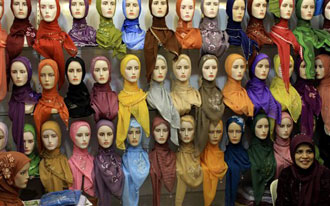Identity is the Asian American Rorschach inkblot test. Depending on your character and personality, it conjures up a different association.
For wannabes it’s the skeleton hanging in the closet, evoking the spectre of being outed for being different from everyone else.
For joiners it’s a free pass to yet another club or party, holding out the promise of instant acceptance from yet another group.
For snobs it provides a clear criterion for excluding masses of people.
For losers it’s a ready excuse for every failing.
For eternal Hamlets it adds another maddening decision point at every turn.
I’ve given in to every one of those impulses. Now I see identity as a pair of 3-D glasses for the movie of life. It lets me see and experience with an extra degree of intensity, as though I am personally really there and not as a generic “person”. You get a revealing perspective on people when they think there is a race card that can be played to get an edge over you. Instead, it gives me the edge because it lets me spot the good, the bad and the ugly that much more quickly.
Some people say, “Why worry about race? We’re all human.”
That latter sentiment I agree with wholeheartedly. What I don’t agree with is the wisdom of going along with the pretense that people are colorblind. That’s a bit of deception that only leads to misunderstanding and resentment bubbling below the surface. I KNOW I’m not colorblind. I see what color everyone is but do my best not to let it distort my sense of fairness. Would I be happy if everyone were that way? You bet. Do I feel comfortable when someone pretends to be colorblind? You bet! Either he’s stupid or thinks I am. That’s not the basis for a constructive relationship.
Stacked atop that fundamental layer of our universal humanity is a more superficial but important layer of race. Why does race matter? It matters because it denotes variations in cultural and family history. Different experiences lead to different perspectives. That isn’t all washed away because we happened to go to the same elementary school.
Someone who wants to pretend they don’t see things any differently from me is holding back perceptions that will probably impact how he relates to me. If you think you’re different in some way from me but don’t want to admit it, that makes me very uncomfortable. I would feel a lot more comfortable if you lay it on the table so we can all see where the differences are and aren’t. If you think I have some odd characteristics that make you uncomfortable, acknowledge that fact so we can see if your preconceptions are accurate.
That kind of constructive dialogue doesn’t happen with people who feel uncomfortable with their identities. That’s why I’m convinced that people who aren’t in touch with their own identities can’t really be in touch with anyone else.
But once the concept of identity is embraced by all, it becomes like the scoop of ice cream that turns the pie of life into pie à la mode. It costs a bit more but, boy, is it satisfying!

